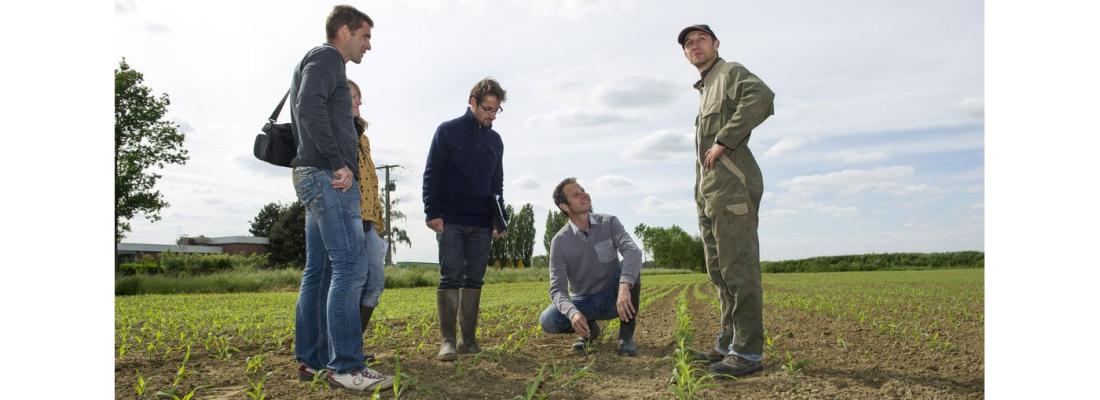Agroecology Reading time 3 min
H2020 IPMWorks: reducing pesticide use by building a European farm network based on the French DEPHY model
Published on 20 November 2020

European agriculture continues to use large quantities of pesticides. Most farms in Europe primarily or exclusively rely on pesticides to combat pests, diseases, and weeds, thus limiting crop losses. The increased use of pesticides over time has become a major societal concern because it threatens the health of humans and the environment. It also creates economic and technical challenges for the farmers themselves because pesticides account for a large percentage of the farm budget, and pesticide overuse leads to a decline in efficacy because target organisms become resistant.
A few pioneering farmers have already successfully adopted IPM strategies: the economic performance of their farms remains strong despite their low levels of pesticide use. The next step is to convince more farmers to make this switch. There is also a need to promote the broader adoption of technically and economically effective IPM strategies that utilise advanced non-chemical tools and take a systemic view of crop farming. IPMWORKS will help disseminate the positive experiences of these early IPM converts, by facilitating knowledge exchange among farmers, performing demonstrations, and training both farmers and their agricultural advisors.
IPMWORKS will draw on the strength of pre-established national farm networks, including DEPHY, the network of 3,000 French farmers who are committed to showing that agriculture can adopt low-pesticide-input production methods. The project will also create new farm demonstration networks in European regions where farmers who have adopted IPM are not yet formally organised. This project aims to engage with farmers, agricultural advisors, government representatives, consumers, and stakeholders in the agrifood industry. The objective is to show that IPM strategies can successfully decrease the need for pesticides when used at larger scales on actual farms representing the diverse sectors of agricultural production. IPMWORKS will show that this systemic approach to crop protection can maintain or even improve the economic performance of farms and reduce the environmental impacts of agricultural production.
IPM's efficacy will be demonstrated on individual farms within the network as well as within France and the entire European Union. The project will highlight the diversity of production systems found across different European regions and the range of strategic methods for managing diseases, pests, and weeds. To bring the EU's Green Deal and Farm to Fork strategy to life, IPMWORKS will engage with researchers, farmers, agricultural advisors, and various stakeholders interested in innovation.
|
Project summary IPMWorks- Integrated Pest Management – 2020-2024 Coordination INRAE – 31 partenaires : INRAE (FR), INRAE-Transfert (FR), ILVO (BE), APCA – Chambres d’agriculture France (FR), DELPHY (NL), ADAS (UK), CONSULAI (PT), IAMZ (SP), Wageningen R. (NL), Aarhus University (DK), KPODR (PL), UCSC (IT), JHI (UK), ACTA – Les instituts techniques agricoles dont l’IFV (FR), LEAF (UK), INTIA (SP), INAGRO (BE), KGZS (SI), FEUGA (SP), Djursland landboforening (DK), VELAS (DK), PROAGRIA (FI), TEAGASC (IE), GLZ (DE), COEXPHAL (SP), IFOAM (BE), JKI (DE), SSSA (IT), AUA (GR), Agroscope (CH), BIOSENSE (RS). Horizon 2020 European funding: €6 million 
H2020 project n° 100033 |
